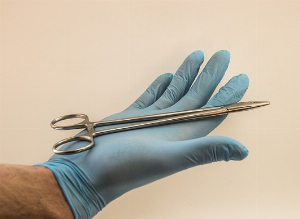Can Diet Help Manage IBD Symptoms?
Published 12 Apr 2016

“Is there an IBD diet I should follow?”
This is a question often asked by patients living with Crohn’s disease and ulcerative colitis to their health care providers. For individuals living with these painful, medically incurable inflammatory bowel diseases (IBD), diet can be a difficult area to navigate. IBD creates a world in which patients lack control in many areas of their health, but diet is one area where they desperately want to be able to take the reins.
Because of this, many patients proactively seek advice from their doctors to find out what dietary modifications may help manage their symptoms. Eating any one particular food does not cause IBD, but certain foods may aggravate symptoms in some patients. Because of the individual nature of these digestive diseases, what works for one patient often does not work for another.
Take Laura and Amber, both ulcerative colitis patients who tried modifying their diet as part of their treatment plan. After being diagnosed, Laura was able to successfully manage her symptoms and improve her overall health by eliminating grains, refined sugar, dairy, and processed foods from her diet. Conversely, Amber tried a variety of ingredient-elimination diets to help her symptoms without success.
While some patients report success with certain diets in alleviating symptoms, there is no scientific evidence supporting these diets. Further, there have been few well-designed clinical trials aimed at testing dietary modifications to help manage symptoms and inflammation in patients with IBD. Therefore, some healthcare providers may offer general diet recommendations, but most are not well-versed in diet and nutrition for IBD patients.
When Laura asked her doctor for diet recommendations, he provided her with information about a specific diet that his other patients tried previously with some success. When Amber asked hers, he was unable to provide her with any recommendations, leading her to seek advice from other patients on the Internet.
Despite the lack of data supporting dietary interventions for patients with Crohn’s disease and ulcerative colitis, the topic is extremely popular among patients. As a result of this high level of interest, researchers are beginning to look at the connection between diet and IBD. The Crohn’s and Colitis Foundation of America (CCFA) was recently awarded $2.5 million to study diet as a tool for managing Crohn’s disease symptoms from the Patient-Centered Outcomes Research Initiative.
The idea for this study came from a patient-generated research question posed in CCFA’s patient-powered research network — CCFA Partners. After seeing its popularity among patients, Dr. James Lewis, professor of medicine and senior scholar in the Center for Clinical Epidemiology and Biostatistics at the Perelman School of Medicine at the University of Pennsylvania, proposed a clinical trial looking at the effectiveness of two diets — specific carbohydrate diet (SCD) and Mediterranean-style diet — to manage Crohn’s symptoms and induce remission.
Considering how critical the issue of diet is for patients, this study will involve them in all aspects — conception, design, and execution. Patients will serve as co-investigators — leaders on the study’s research team — to ensure that their needs and perspectives are incorporated into the study. Patients will work with the research team throughout all stages of this project, including protocol development, study operations, analysis and interpretation of study data, and the dissemination of research results. Ultimately, patients will play a key role in developing future guidelines about diet and IBD.
While diet modifications may still only work for some and not others, this new study puts researchers one step closer to understanding the role food may play in managing Crohn’s disease and ulcerative colitis. By having this knowledge, we aim to provide consistent, data-supported recommendations to the 1.6 million Americans living with these debilitating digestive diseases.
Hufftington Post
Comments
You will also like
Read the article
Read the article

 Facebook
Facebook Twitter
Twitter


